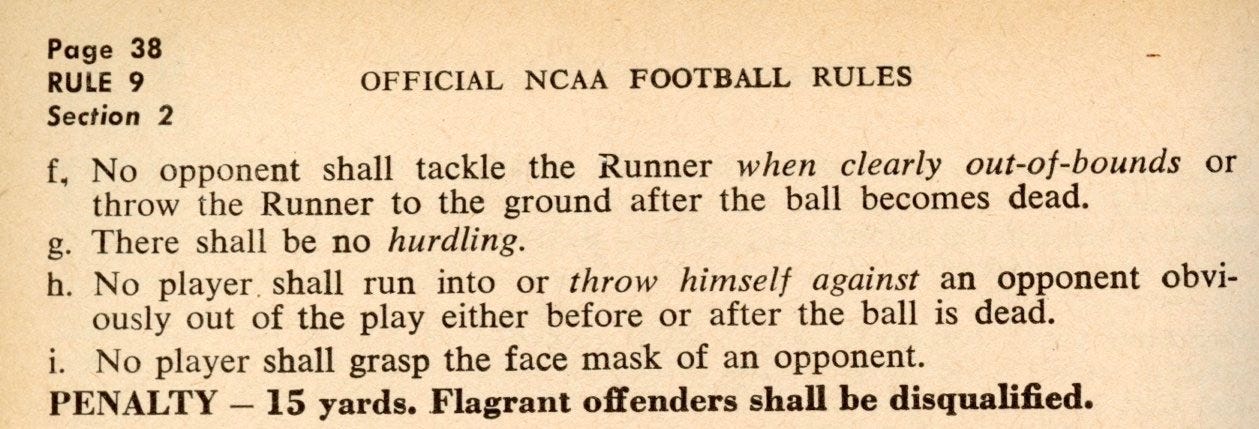Today's Tidbit... Grasping A Horned Frog's Face Mask
The Tidbit of a few days ago covered the transition from leather to plastic helmets in the 1950s. At the time, some coaches continued capping their teams in leather, believing plastic helmets presented a danger to other players. Many of those coaches also disliked face masks since opposing players were also struck by them. Nevertheless, the 1950s saw a range of face mask designs come on the market, and a higher percentage of players wearing them.
Other than early rules outlawing tackling below the waist or knees, football’s rules did not specify which part of the body or equipment opponents could grab when tackling a ball carrier. You could grab him anywhere that worked, including the face or helmet.
As more ball carriers wore face masks, opposing players grabbed the runner's mask more often, causing more neck twisting and turning. That led the NCAA to make grasping an opposing player's face mask illegal starting in 1957, with flagrant offenders subject to disqualification.
Of course, making the grasping of face masks illegal did not stop it from happening, though players learned to do it less often, just like clipping, horse-collar tackling, and targeting. However, it still happened and continues to happen.

While the penalty for grasping the face mask entered the books in 1957, "face-masking" did not appear in print until five years later, and its non-hyphenated form took another five or six years to appear.
Today's TidBit Bonus
When I pulled out the 1957 Official NCAA Football Guide to scan the face mask rule, I noted the cover featured Alex Karras, who became an Outland Trophy winner, a member of the Pro Football Hall of Fame, and, most important, Mongo.
With a critical midterm election drawing near, let's remember Karras' famous line related to government office:
I never graduated from Iowa, but I was only there for two terms - Truman's and Eisenhower's.
Football Archaeology is reader-supported. Click here to buy one of my books or otherwise support the site.




